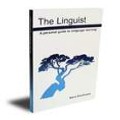Italian is relatively easy for someone familiar with Spanish and French. Concentrated listening to tapes and reading soon brought my Italian up to a usable level. Unfortunately I have too little opportunity to use it, but I always enjoy watching an Italian movie and being able to understand what is said. I also intend to buy more Italian ebooks and audio books when I have the time.
Italian is known as the language of music and love. While Italian may have the reputation of being an exceptionally beautiful language, I find that all languages are beautiful when I study them and start to understand them. When any language is well spoken, it has its own elegance and beauty. I always appreciate hearing people speak a language well, with the appropriate choice of words and with clarity, and with reference to the culture and history of that language.
It is impossible to study Italian without thinking of the enormous cultural contribution of Italy to Europe and the world. But Italy was as much a conduit of culture as a creator. It was the influence of Greece, itself stimulated by other more ancient Mediterranean cultures, that was Rome's great teacher. The Romans respected Greek culture and in their myth of origin they try to impute their ancestry back to Aeneas of Troy. (This myth, like so many myths of origin, is not true.)
The legacy of Rome's law and literature and its great public works have profoundly marked Western civilization. Long after the collapse of the Roman Empire, the genius of Italian culture again flourished in various city states. As always in history, the stimulus of foreign contact was paramount. Venice achieved its splendour because of its dominance of the sea and contacts with Byzantium and the East. Similarly the involvement of Italian cities like Genoa and the cities of Tuscany in foreign trade, including trade with the Muslim world, contributed to their rapid growth in the early Middle Ages and eventually led to the Italian Renaissance.

